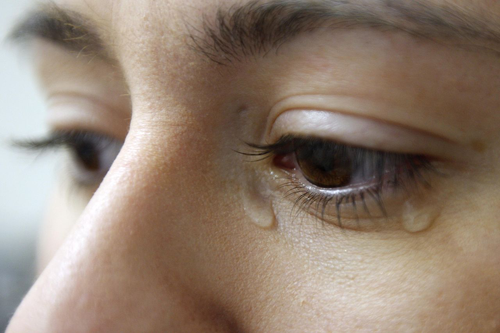“Injustice and corruption will never be transformed by keeping them hidden, but only by bringing them out into the light and confronting them with the power of love.”—Martin Luther King Jr.
One-third of women across the globe experience some kind of physical or sexual abuse in their lifetimes, and another one-third to one-half experience at least some form of psychological violation.
Martin Luther King’s wisdom inspired Rev. Cynthia Brix and Satyana Institute’s co-founder and co-director Will Keepin’s entire methodology for Gender Reconciliation International (GRI), a program that facilitates healing and reconciliation between men and women by spreading awareness and exploring new possibilities and alternatives regarding gender injustice. To date, they have organized over 75 transformational gatherings for men and women in seven countries. The couple is also very involved in interspiritual practice, hosting meditation workshops and interfaith mysticism retreats to increase understanding and promote positive change.
Brix and Keepin will be leading interactive exercises and participating in a workshop—Experiencing Gender Reconciliation—at the Women & Power Conference at the Omega Institute in Rhinebeck, New York, this Saturday, September 20, and Rewire Me wanted to learn more about their work before the event.
Their key focus for Women & Power will be to bring participants to a deeper level of understanding of gender issues by “confronting the injustice, going into the wound together, and coming out the other side,” Keepin explained.
To illustrate the magnitude of gender-based violence, Brix and Keepin shared some alarming information:
One-third of women across the globe experience some kind of physical or sexual abuse in their lifetimes, and another one-third to one-half experience at least some form of psychological violation.

“Men feel like they’re responsible for the violence against girls and women and our work is really about creating a safe place for everyone’s truth to come out without shame or blame,” said Brix. “It’s a place where we come together and learn how to share our story and where it can be heard with compassion—not speaking our story as victims, but as witnesses to the truth of what’s happened to us or the truth of who we are and what’s shaped us as women and men.” At their workshops and retreats, Brix and Keepin encourage people to move through the pain and suffering to emerge stronger and more self-aware. Hearing similar stories shared by others motivates people to drop the pretenses and get real about the impact of the experiences that they have lived through. This often awakens something in the others who are present.
Archbishop Desmond Tutu holds similar values and began a partnership with GRI to implement change and improve gender relations. Together they hope to help men and women be honest and truthful with one another as well as educate younger generations to build a future that’s safer and respectful for everyone.

While visiting India, Keepin discovered the complicated role of cultural values on gender violence. Although India is a country where there is extreme gender oppression, there are still remnants of matrilineal societies that honor women and the feminine. He was able to spend time in some of these communities and speak with those women about their society, which is disappearing. He learned that sexual violence and rape were unknown until Westerners came.
“There was this whole kind of intrinsic honoring of the feminine throughout their society and I was deeply moved by that,” said Keepin. “I realized that even though rape and sexual violence are illegal, many factors in our culture directly encourage them. In the media and in the conditioning of young boys and men, there is a profound violation in the psyche of a young boy, where he’s essentially given conflicting messages—on one side he is told ‘you should be kind, you should be gentle and compassionate’ and on the other side he is told to be strong and not to show weakness or vulnerability.”
It’s a key healing bridge when men can experience the pain of women as their own pain, and vice versa. That’s the transformative moment.
The turning point for Keepin, his “Rewire Me Moment,” occurred while he was working in a prison in South Africa. There were about 36 men in that room, and three women, female members of the team working with Brix and Keepin on gender reconciliation. All of the men had been convicted of murder and rape and were there to work through these issues.
“It was astounding, some of them were multiple offenders—they had not known any other way to be,” Keepin explained. “There was one who was 22 and he had been in there since he was 14. He was one of the most feared murderers and rapists in his community. When he told his story, it became so clear that he knew nothing else—he was trained to be this way and had no idea there was another alternative. We live in a culture that actually cultivates the violence it supposedly repudiates.”
It’s clear that Brix and Keepin’s program is not only necessary, it has the power to transform gender imbalance and injustice on a global scale. Currently there’s no forum—in the government, businesses, churches, or schools—where this level of authentic and intimate truth-telling is encouraged or supported. There is a systemic repression of precisely the open communication that needs to happen. Ultimately, Brix and Keepin hope their work will pave the way for open and honest discussions within those institutions.
“It’s a key healing bridge when men can experience the pain of women as their own pain, and vice versa,” Keepin said. “That’s the transformative moment.”
Post Disclaimer
This content is for informational purposes only and does not constitute medical advice. Please consult a healthcare professional for any medical concerns.



